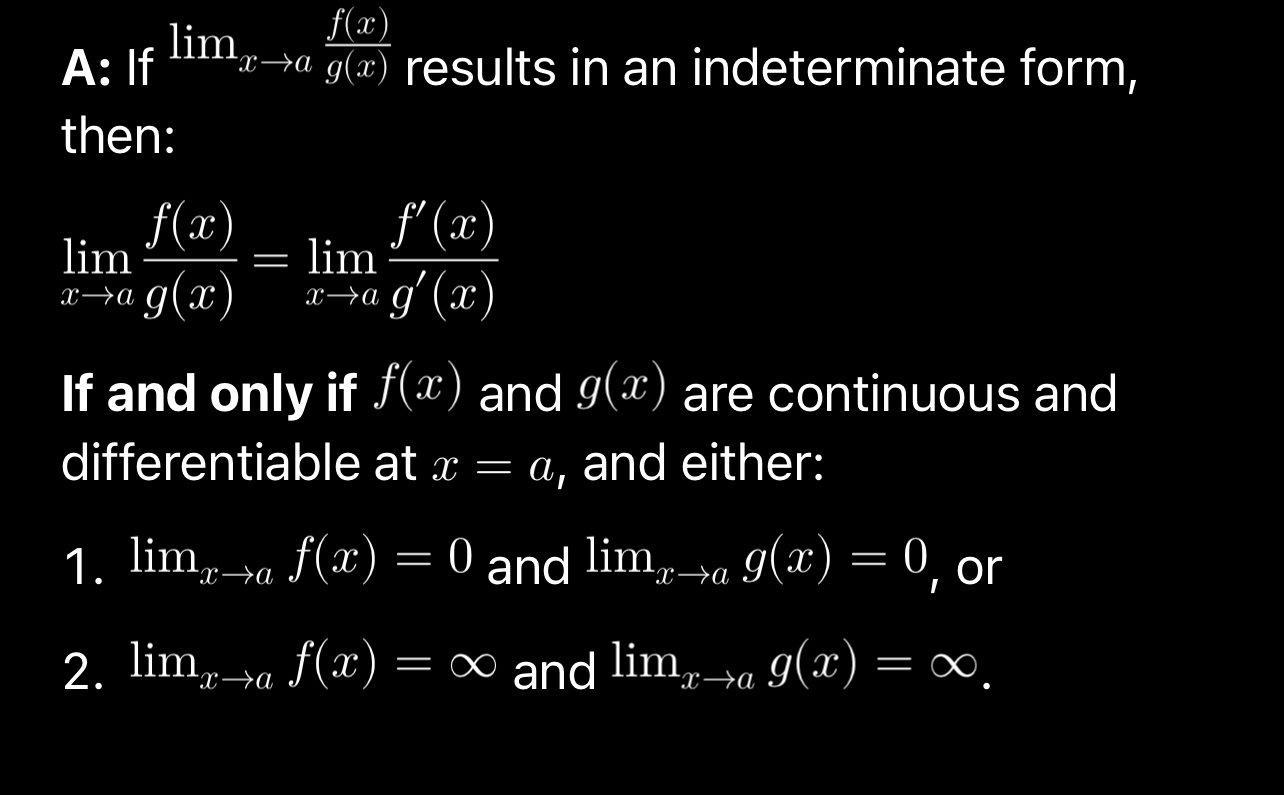AP Calc AB Memorization Quiz #2
1/9
Earn XP
Description and Tags
Name | Mastery | Learn | Test | Matching | Spaced | Call with Kai |
|---|
No analytics yet
Send a link to your students to track their progress
10 Terms
What must be true if f has a horizontal asymptote at y = c?
Either \lim\limits_{x \to \infty} f(x) = c or \lim\limits_{x \to -\infty} f(x) = c

What is the definition of an odd function? Describe its symmetry.
An odd function satisfies f(-x) = -f(x) and is symmetric about the origin.
What is the definition of an even function? Describe its symmetry.
An even function satisfies f(-x) = f(x) and is symmetric about the y-axis.
What does the chain rule state?
\frac{d}{dx} f(g(x)) = f{\prime}(g(x)) g{\prime}(x)

What is the average value of a function f on [a,b]?
\frac{1}{b-a} \int_{a}^{b} f(x)dx

Given the velocity-time equation y = v(t), how do you find displacement and total distance traveled on [a,b]?

What is the general solution for the differential equation {dy}/{dx} = ky?

What is an inflection point of f?
A point where f is continuous and changes concavity, or where f{\prime}{\prime} changes signs.
What must be true if f has a vertical asymptote at x = c?

What does L’Hôpital’s Rule state?
